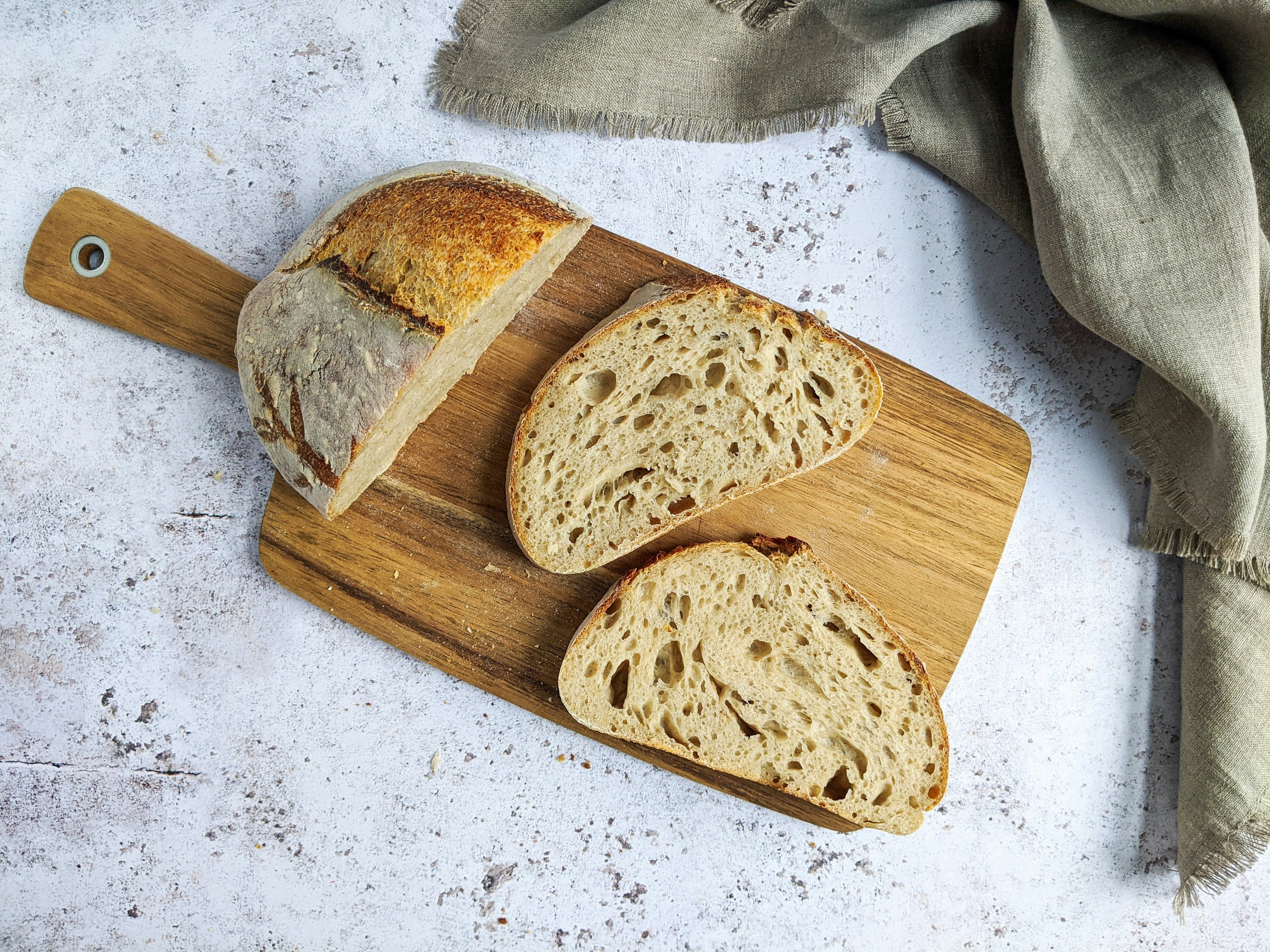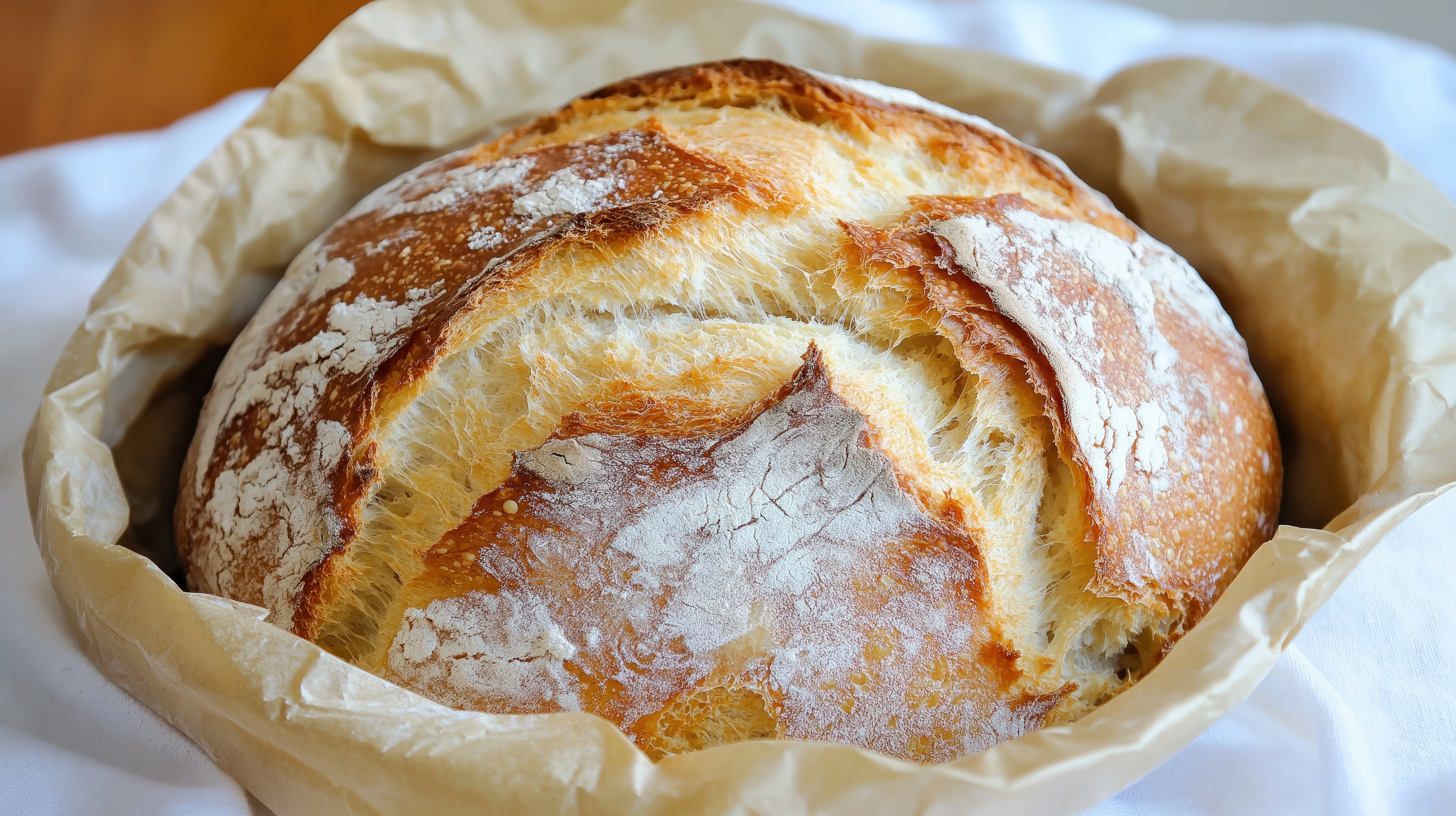Is Sourdough Good for You? Health Benefits and Risks
Oct 3, 2024
In recent years, sourdough bread has experienced a surge in popularity, with many people embracing the art of home baking and developing their own sourdough starters. But beyond its tangy flavor and artisanal appeal, is sourdough bread actually good for you? Let's dive into the nutritional profile, potential health benefits, and possible drawbacks of this ancient bread-making technique.
What is Sourdough Bread?
Sourdough bread is the oldest form of leavened bread, dating back thousands of years. Unlike modern breads that rely on commercial yeast, sourdough bread is made using a fermentation process involving wild yeast and lactic acid bacteria. This fermentation not only gives sourdough its distinctive tangy flavor but also affects its nutritional profile and digestibility.
Nutritional Profile of Sourdough Bread
Before we delve into the potential health benefits, let's take a look at the nutritional content of an average slice of sourdough bread (approximately 50 grams):
Calories: 185
Protein: 2 grams
Fat: 1 gram
Carbohydrates: 36 grams
Fiber: 1 gram
Sugar: Less than 1 gram
Sourdough bread is also a good source of several essential nutrients, including:
Calcium
Potassium
Magnesium
Folate
Niacin
Additionally, sourdough bread contains antioxidants, which play a crucial role in protecting our bodies against oxidative stress and chronic diseases.
Is Sourdough Bread Healthier Than Regular Bread?
One of the most common questions about sourdough bread is whether it's healthier than regular bread. While both types of bread can be part of a balanced diet, sourdough bread does offer some unique health advantages:
1. Improved Nutrient Absorption
The fermentation process in sourdough bread production creates an environment that enhances the bioavailability of nutrients. This means that your body can more easily absorb and utilize the nutrients present in sourdough bread compared to regular bread.
2. Lower Glycemic Index
Sourdough bread typically has a lower glycemic index than regular bread. This means it causes a slower, more gradual rise in blood sugar levels, which can be beneficial for blood sugar control and overall metabolic health.
3. Easier Digestion
Many people find sourdough bread easier to digest than regular bread. The fermentation process breaks down some of the gluten and phytic acid in the bread, which can make it more tolerable for those with mild gluten sensitivities or digestive issues.
4. Prebiotic Properties
Sourdough bread contains prebiotic fibers that feed the beneficial bacteria in your gut. This can support a healthy gut microbiome, which is increasingly recognized as crucial for overall health and wellbeing.

Potential Health Benefits of Sourdough Bread
Now that we've established some of the ways sourdough bread differs from regular bread, let's explore its potential health benefits in more detail.
1. Improved Digestive Health
The fermentation process in sourdough bread production can make it easier for some people to digest compared to regular bread. This is particularly beneficial for individuals who experience bloating or discomfort after eating conventional bread products.
The prebiotic fibers in sourdough bread also support the growth of beneficial gut bacteria, which can contribute to improved digestive health and a stronger immune system.
2. Better Blood Sugar Control
The lower glycemic index of sourdough bread means it can help maintain more stable blood sugar levels. This can be particularly beneficial for individuals with diabetes or those looking to manage their weight.
3. Increased Nutrient Absorption
The lactic acid produced during fermentation helps to break down phytic acid, a compound that can interfere with mineral absorption. This means that the nutrients in sourdough bread, such as iron, zinc, and magnesium, are more readily available for your body to absorb and utilize.
4. Potential Antioxidant Benefits
Sourdough bread contains various antioxidants, including peptides produced during the fermentation process. These antioxidants can help protect your cells from damage and may contribute to a reduced risk of chronic diseases.
5. Possible Gluten Tolerance Improvement
While sourdough bread is not gluten-free, the fermentation process does break down some of the gluten proteins. This can make it more tolerable for individuals with mild gluten sensitivities, although it's still not suitable for those with celiac disease.
Is It Okay to Eat Sourdough Bread Every Day?
For most people, including sourdough bread as part of a balanced diet is perfectly fine. However, as with any food, moderation is key. While sourdough bread offers several health benefits, it's still a source of carbohydrates and calories, so portion control is important, especially if you're managing your weight or blood sugar levels.
If you're incorporating sourdough bread into your daily diet, consider the following tips:
Choose whole grain sourdough when possible for added fiber and nutrients.
Pay attention to portion sizes.
Pair your sourdough with protein and healthy fats to create a balanced meal.
Consider your overall carbohydrate intake if you're managing diabetes or following a specific diet plan.
Is Sourdough Bread Healthy for Weight Loss?
While no single food can make or break a weight loss journey, sourdough bread can be part of a healthy weight loss plan. Here's why:
Lower glycemic index: The slower release of sugars into the bloodstream can help manage hunger and cravings.
Improved satiety: The fermentation process may enhance the bread's ability to keep you feeling full and satisfied.
Nutrient density: Sourdough bread provides essential nutrients, which is important when you're reducing overall calorie intake.
However, it's crucial to remember that weight loss ultimately comes down to overall calorie balance. If you're trying to lose weight, focus on creating a balanced diet that includes a variety of nutrient-dense foods, regular physical activity, and appropriate portion sizes.
What Are the Disadvantages of Sourdough Bread?
While sourdough bread offers many potential health benefits, it's important to consider some potential drawbacks:
1. Not Suitable for Gluten-Free Diets
Despite being lower in gluten than regular bread, sourdough is not gluten-free. People with celiac disease or severe gluten sensitivity should avoid sourdough bread made with wheat, rye, or barley.
2. Variability in Nutritional Content
The nutritional profile of sourdough bread can vary depending on the flour used, fermentation time, and baking method. This can make it challenging to determine the exact nutritional content of each loaf.
3. Potential for Contamination in Home-Baked Loaves
If you're making sourdough bread at home, there's a small risk of contamination in your sourdough starter. Signs of a contaminated starter include:
Lack of bubbles
Green, pink, orange, or black patches
Fuzzy appearance
If you notice any of these signs, it's best to discard the starter and begin again.
4. Higher Calorie Content
Sourdough bread can be higher in calories compared to some other types of bread, which may be a consideration for those closely monitoring their calorie intake.
Is Sourdough Bread a Bad Carb?
Sourdough bread is not inherently a "bad" carb. In fact, it can be considered a healthier option compared to many refined white breads. The fermentation process in sourdough bread production creates several beneficial changes:
Lower glycemic index
Improved nutrient availability
Potential prebiotic effects
However, like all carbohydrate-rich foods, sourdough bread should be consumed in moderation as part of a balanced diet. If you're following a low-carb diet, you may need to limit your intake of sourdough bread or choose lower-carb alternatives.

Is Sourdough Bread a Junk Food?
Sourdough bread is far from being classified as a junk food. Unlike typical junk foods that are high in calories, sugar, and unhealthy fats while being low in nutrients, sourdough bread offers several nutritional benefits:
It's a good source of complex carbohydrates for energy.
It contains essential nutrients like B vitamins, minerals, and antioxidants.
The fermentation process enhances its digestibility and nutrient availability.
It can support gut health through its prebiotic properties.
However, as with any food, the overall healthiness of sourdough bread in your diet depends on how it's prepared, what it's paired with, and how much of it you consume.
Incorporating Sourdough Bread into a Healthy Lifestyle
If you're looking to enjoy the benefits of sourdough bread as part of a healthy lifestyle, consider the following tips:
Choose whole grain sourdough varieties for added fiber and nutrients.
Pay attention to portion sizes, especially if you're managing your weight.
Use sourdough as a base for nutrient-dense toppings like avocado, eggs, or lean proteins.
Pair sourdough with plenty of vegetables and lean proteins to create balanced meals.
If you're baking at home, experiment with different flours and fermentation times to find what works best for you.
Remember, a healthy diet is all about balance and variety. Sourdough bread can be a nutritious and delicious part of your meal plan, but it should be complemented by a wide range of other wholesome foods.
Conclusion: Is Sourdough Bread Good for You?
In conclusion, sourdough bread can indeed be a healthy addition to most people's diets. Its unique fermentation process results in a bread that's potentially more digestible, more nutrient-dense, and better for blood sugar control compared to many commercial bread products.
However, like any food, sourdough bread should be consumed as part of a balanced diet. It's not a miracle food, and overconsumption can still lead to excess calorie intake. For those with specific health conditions or dietary restrictions, it's always best to consult with a healthcare professional or registered dietitian before making significant changes to your diet.
Whether you're buying artisanal sourdough from a local bakery or embarking on your own sourdough baking journey, this ancient bread-making technique offers a flavorful and potentially healthier alternative to conventional bread products.
Remember, while diet plays a crucial role in overall health, it's just one piece of the puzzle. Regular physical activity, adequate sleep, stress management, and other lifestyle factors all contribute to your overall wellbeing. Consider using a comprehensive approach to health and fitness, such as the personalized plans offered by Tidalflow's AI-powered personal trainer, to help you achieve your health and wellness goals.
By combining nutritious foods like sourdough bread with a balanced exercise routine and healthy lifestyle habits, you can work towards optimal health and vitality. So go ahead, enjoy that slice of sourdough – your taste buds and your body may thank you!
You should not have to do it all on your own













